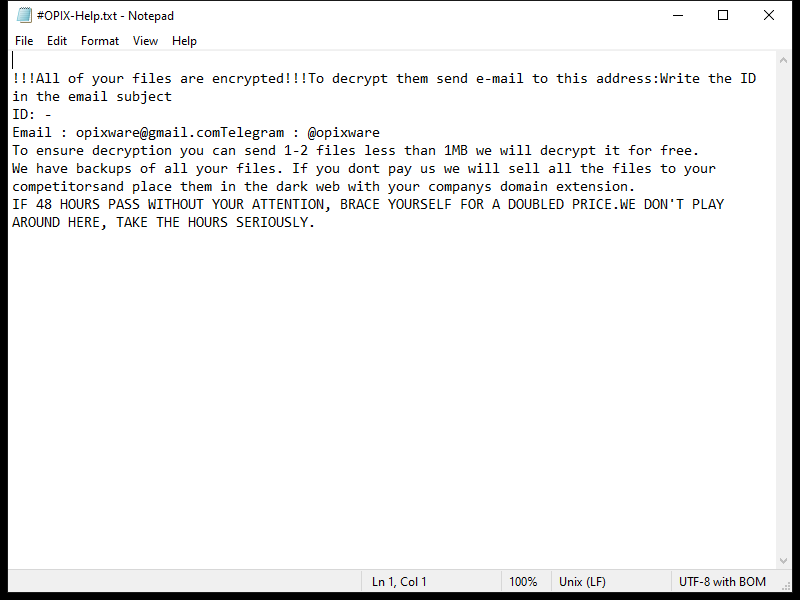OPIX Ransomware is a type of malicious software that encrypts files on a victim’s computer and demands a ransom payment in exchange for decrypting the files. It typically infects computers through phishing emails, malicious websites, or software vulnerabilities.
When OPIX Ransomware infects a computer, it adds a specific file extension to all encrypted files, such as “.opix” or “.locked”. The ransomware uses advanced encryption algorithms, such as AES or RSA, to encrypt the files, making them inaccessible without the decryption key.
After encrypting the files, OPIX Ransomware creates a ransom note, typically named “README.txt” or “RECOVERY.txt”, which contains instructions on how to pay the ransom in exchange for the decryption key. The ransom note is usually placed on the desktop or in folders containing encrypted files.
Unfortunately, there are no decryption tools available for OPIX Ransomware as of now. However, it is not recommended to pay the ransom as there is no guarantee that the cybercriminals will provide the decryption key or that it will work properly.
If you have been affected by OPIX Ransomware, you can try to restore your files from backups, use file recovery software, or seek help from cybersecurity experts. It’s important to regularly backup your important files to prevent data loss in case of a ransomware attack.

